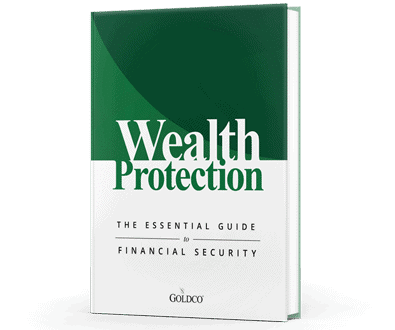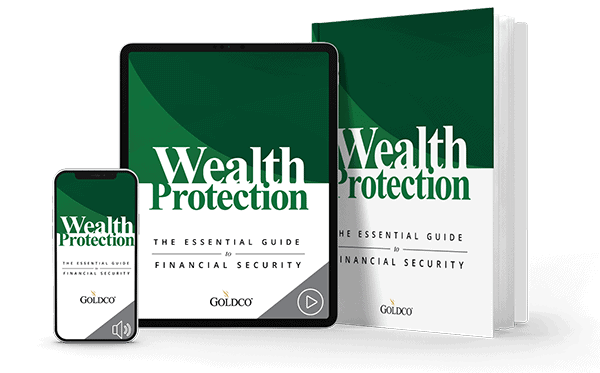War’s Effects on Gold, Oil, and Markets
If you had told someone at the beginning of 2022 that Russia would invade Ukraine, they wouldn’t have believed you The idea that in this day and age any country would just unilaterally attack...
Economy

It’s only natural that as Americans we focus most of our attention on domestic matters, even when it pertains to economic issues with a global reach. As the world’s largest economy, what happens in the US impacts the rest of the world. But are we ignoring what’s going on in other countries to our own detriment?
As much as we would expect a US recession or depression to pull the rest of the world into recession, could the origins of a worldwide recession or depression happen elsewhere? And what could the consequences be of a worldwide recession spurred by events in another country?
You could make the argument that a worldwide recession had its origins in China. China’s approach to COVID in 2020 served as a roadmap for other countries around the world, who decided to imitate China and thus plunge their economies into deep recessions.
Much of what we’re experiencing today economically is still the result of those mistakes, and the responses to those mistakes. Supply chain disruptions that continue into the present have their origins in 2020. And the inflation we’re seeing worldwide has its origins in the policy response to 2020’s shutdowns, which flooded markets with easy money to an extent the world had never seen before.
China has never completely abandoned its strict lockdown policies, and it’s still facing some significant economic headwinds. Most importantly right now, its mortgage and housing market is coming under some significant stress.
Unlike the US, where mortgage payments don’t start until a home is finished and delivered to the homebuyer, mortgage payments in China start even before a home is complete. And with the financial problems currently besetting Chinese property developers such as Evergrande Group, many Chinese are stuck paying mortgages on properties that haven’t been built and that might not ever be completed.
These financial problems are beginning to cascade. First it was Evergrande Group defaulting on debt payments late last year. Now fed-up Chinese citizens are starting to stop paying mortgages on properties that haven’t been completed. And even suppliers to real estate companies are now starting to refuse to repay loans from banks, since they haven’t been paid by the real estate firms.
All of this is putting a tremendous strain on China’s banking system. Adding to that were recent protests in some areas of China that saw numerous depositors protesting that their banks had frozen their ability to retrieve their funds, which in many cases were the entire life savings of Chinese workers. The situation in China risks spiraling out of control, with many Chinese learning the hard way the same lessons American bank depositors learned in the 1930s.
The thing about China is, nobody knows what a recession or depression would look like. We’re so used to China’s economy continually growing that the concept of recession or depression in China just doesn’t compute.
Western countries have suffered recessions for decades, and the cycle is one that is pretty familiar to most people by now. Unemployment rises, business activity slows, but eventually the economy recovers and growth returns.
China hasn’t seen those types of business cycles, as the economy is still very much under state control and is still adjusting to market forces. So the big questions are: how will the Chinese people react, and how will the Chinese government react?
There’s no question that whatever happens in China will have spillover effects in the rest of the world. But no one knows what will happen in China.
Will the government crack down on protesting depositors in a bid to maintain control and shore up the fragile banking sector, even if that means violence that could surpass Tiananmen Square? Will the Chinese people get fed up with corruption and graft and try to take down the government through a popular revolution? Or will the unease in China lead to internecine conflict within the Chinese Communist Party, leading to political unrest and possible civil war?
At this point, who knows what will happen. But what’s going on in China could very well presage what could happen here in the United States. All is not well in the Middle Kingdom, and we would do well to watch what’s going on over there, because there’s definitely a chance that China’s problems may someday become our problems.
Even though China has made significant progress over the past few decades, its economy is still not as developed as most Western countries. High debt levels, rampant fraud, and a banking sector that relies heavily on government intervention for its survival is hardly a recipe for keeping the world’s second-biggest economy running.
We have enough problems of our own in the United States, what with rising inflation, ongoing supply chain issues, and labor shortages. But a collapse of the Chinese economy could really put further stress on supply chains and completely upend companies that have become more and more reliant over the years on production coming from China. So if the recession we were going to face was a bad one, one that is exacerbated by a collapse of the Chinese economy could be even worse.
If that happens, you don’t want to end up like many Chinese citizens are today, unable to access the money they’ve been saving up for years. Too many of them put all their eggs in one basket, and they’re finding out the hard way just how dangerous that can be.
You’ve probably heard time and again the warning that you need to diversify your assets, but have you really diversified them enough? Too many people think that a mix of stocks and bonds is enough diversification. And too many people keep all their money at a single bank, or all their retirement accounts with a single brokerage. There are many ways to skin the diversification cat, but many people just don’t take advantage of all of the options available to them.
One of those options is buying gold, a portfolio diversification option that is becoming increasingly popular with a larger number of people. Gold has a history of acting as a hedge against inflation and financial turmoil, and its recent performance in the aftermath of the 2008 financial crisis is still fresh in many people’s minds. Whether you choose to buy gold through a gold IRA or buy gold coins for direct delivery, there are numerous options available to help you safeguard your assets.
Don’t let the wealth you’ve spent a lifetime growing fall victim to economic circumstances that you could have foreseen. Call the experts at Goldco today and find out how gold can help you protect your assets against future financial uncertainty.



